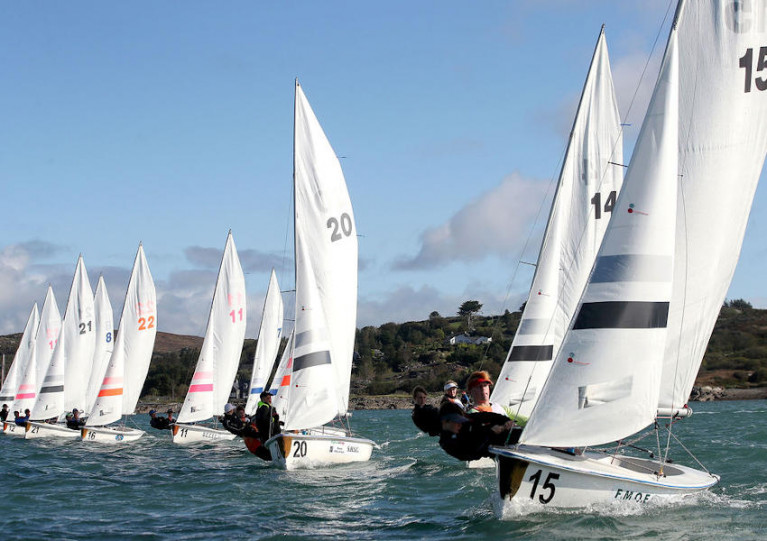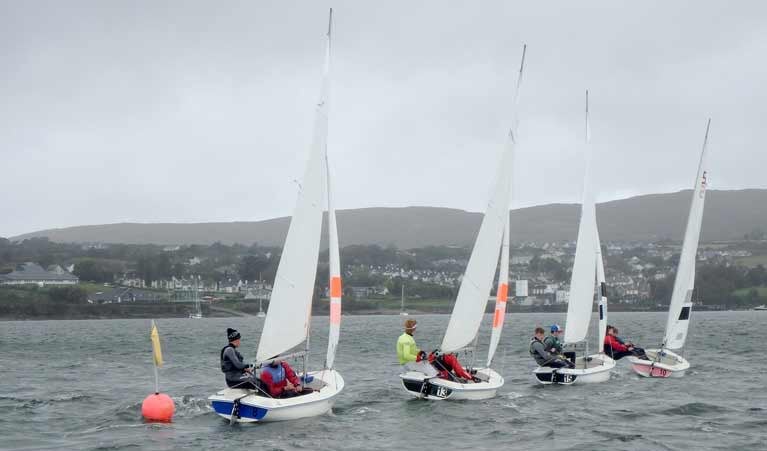Displaying items by tag: Junior All Ireland
Disappointment For Youth Sailors At Cancellation Of This Weekend’s All-Ireland Juniors
The cancellation of the Irish Sailing All-Ireland Junior Championships this weekend is “a big disappointment” for all involved, both those competing and being the scenes, the governing body has said.
As previously reported on Afloat.ie, the event scheduled for Schull in West Cork was called off in the wake of new coronavirus travel restrictions for Dublin, where more than half of competitors are based.
Sixteen youth sailors and their crew from 10 classes had been looking forward to racing in Schull Harbour in a unique event that sees all nominees compete in the same class of boat — this year would have been the turn of the TR3.6s.
“We were so disappointed to cancel the Junior All Irelands – the level of sailing is excellent and it’s always a fun event,” said Irish Sailing’s chief executive Harry Hermon.
“Personally, I was looking forward to it as I’ve seen so many young people around the country doing a lot of sailing this summer, and I wanted to chat to this group about what they’d experienced.
“I’d like to highlight as well the huge amount of work done behind the scenes right up until the point of cancellation, and I’d like to thank the hosts Fastnet Marine and Outdoor Education Centre, the organising committee and the large number of volunteers who make these events such a pleasure to work on.”
The list of successful nominees was released last week and included five girls, two Irish Sailing Academy sailors, and five Laser sailors.
There was a good mix of club representation but Howth Yacht Club just pipped the lead with three members on the list: Eve McMahon, Johnny Flynn and Luke Turvey.
The list included two family teams (Trevor and Russell Bolger, and Charlie and Lucia Cullen, all RStGYC), one set of twins (Conor and Jack Galligan, Greystones SC), and two siblings on different teams (Clementine and Nathan van Steenberge, National YC).
There were two female-only teams (Chloe Murphy and Abigail Johnston, Lough Ree YC, and Zoe Whitford and Kelly Patterson, East Antrim Boat Club), and Eve McMahon chose her Laser Academy teammate Tom Higgins as crew.
Optimist sailor Ben O’Shaughnessy of the Royal Cork Yacht Club said: “It would have been a great event with great organisation but unfortunately it was cancelled for all the right reasons. I’m looking forward to sailing in the future and getting back to race season.”
Irish Sailing says work has already begun on the 2021 event which will take place on the weekend 25 and 26 September at a venue yet to be confirmed.
Junior All Ireland Sailing Championships Cancelled
The fact that over 50% of the competitors and organisers would be travelling from Dublin - a city and county currently under COVID restrictions - means the Junior All Ireland Sailing Championships scheduled to be sailed at the Fastnet Marine Outdoor Education Centre in Schull, West Cork next weekend (September 26) have been cancelled for 2020.
It is the latest in a series of sailing events that have fallen victim to the pandemic, not least four key Dublin events this weekend as Afloat reported here.
The FMOEC has agreed to host the Junior All Irelands in Schull in 2021.































































